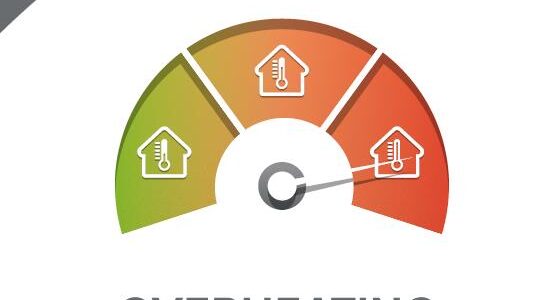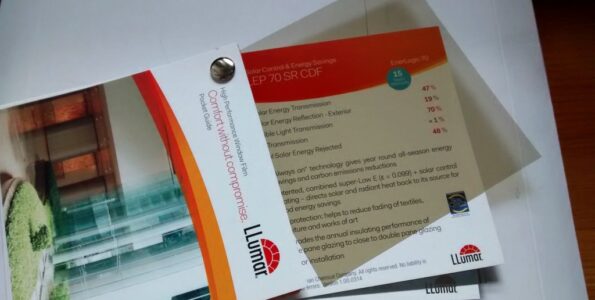Overheating – the hot topic in housing (pun intended)

Inkling recently co-authored a Zero Carbon Hub publication on assessing overheating in dwellings. This document describes the methodologies and tools currently available for the prediction of overheating risk in dwellings in England and Wales, and poses a challenge to improve on them. The key points highlighted in the report are: – The results obtained […]
Read More- Posted by
 Susie Diamond
Susie Diamond - Posted in Overheating, Publications, Research
 Jul, 27, 2015
Jul, 27, 2015 Comments Off on Overheating – the hot topic in housing (pun intended)
Comments Off on Overheating – the hot topic in housing (pun intended)
Susie vice-chair of new CIBSE Resilient Cities group

Susie is vice-chair of the new CIBSE Resilient cities group. The groups first initiative has been to set up a blog stream giving voice to opinions across the industry on what it means to equip our cities for the late 20th and early 2st centuries. Susie has written the first post for the blog, setting […]
Read More- Posted by
 Susie Diamond
Susie Diamond - Posted in CIBSE, Research, Susie Diamond
 Jul, 08, 2015
Jul, 08, 2015 Comments Off on Susie vice-chair of new CIBSE Resilient Cities group
Comments Off on Susie vice-chair of new CIBSE Resilient Cities group
Overheating in Homes – The Big Picture

Inkling have contributed to this report recently published by the Zero Carbon Hub. Why does overheating happen? How can the construction and energy efficiency sector prevent the issue getting worse? What can local and national governments do to support the housing sector? And why does it matter? The report can be downloaded here.
Read More- Posted by
 Susie Diamond
Susie Diamond - Posted in Overheating, Publications, Research
 Jun, 25, 2015
Jun, 25, 2015 Comments Off on Overheating in Homes – The Big Picture
Comments Off on Overheating in Homes – The Big Picture
Inkling carrying out modelling to assess window film performance

Inkling have been doing some work with Eastman to explore the properties of some of their glazing films and how well the dynamic thermal modelling tools (TAS and IES) can pick up their benefits. It has been an interesting exercise and we thought we’d share some of what we’ve learned in this blog post. […]
Read More- Posted by
 Claire Das Bhaumik
Claire Das Bhaumik - Posted in Research
 May, 18, 2015
May, 18, 2015 Comments Off on Inkling carrying out modelling to assess window film performance
Comments Off on Inkling carrying out modelling to assess window film performance
Inkling Blog #3: Closing the Building Performance Gap
Our last Blog identified a number of ‘Performance Gaps’ caused by a wide spectrum of conceptual and quality issues ranging from a lack of clarity in the industry regarding building performance criteria to poor build quality on site. So, what can we do to close these gaps? As engineers, modellers and designers we […]
Read More- Posted by
 Claire Das Bhaumik
Claire Das Bhaumik - Posted in Claire Das Bhaumik, Research, Values
 Oct, 23, 2014
Oct, 23, 2014 Comments Off on Inkling Blog #3: Closing the Building Performance Gap
Comments Off on Inkling Blog #3: Closing the Building Performance Gap
What is adaptive thermal comfort?
Overheating in buildings has historically been quantified by the number of occupied hours per year that the indoor temperature exceeds a particular temperature, irrespective of external temperatures. However, recent research has shown that comfortable room temperature changes with the external air temperature meaning that occupants are comfortable with higher room temperatures during warm weather. This […]
Read More- Posted by
 Claire Das Bhaumik
Claire Das Bhaumik - Posted in Research, Training
 Jun, 30, 2014
Jun, 30, 2014 Comments Off on What is adaptive thermal comfort?
Comments Off on What is adaptive thermal comfort?
Isabel working on Land Art Generator competition entry
Isabel has been working with Sarah Wigglesworth Architects on an entry for the Land Art Generator competition. This is the third year of the competition which invites interdisciplinary teams from around the world to submit their ideas for public art that provides utility-scale clean energy to the grid. This year the competition site is in […]
Read More- Posted by
 Susie Diamond
Susie Diamond - Posted in Competitions, Research
 May, 20, 2014
May, 20, 2014 Comments Off on Isabel working on Land Art Generator competition entry
Comments Off on Isabel working on Land Art Generator competition entry
Claire to present at CIBSE ASHRAE Technical symposium 2014
Claire is to present research at the CIBSE ASHRAE Technical symposium 2014 in Dublin next month on ‘A comparison of the CIBSE Guide A and TM52 overheating criteria for a range of building types’ The aim of the research was to investigate how the same building performs with different compliance criteria. Three different building […]
Read More- Posted by
 Claire Das Bhaumik
Claire Das Bhaumik - Posted in CIBSE, Claire Das Bhaumik, Events, Research
 Mar, 20, 2014
Mar, 20, 2014 Comments Off on Claire to present at CIBSE ASHRAE Technical symposium 2014
Comments Off on Claire to present at CIBSE ASHRAE Technical symposium 2014
Part L2A 2013 – “How to pass” – Part 2
The Notional Building To assess carbon compliance with the Part L 2013 building regulations, the building as designed is entered into modelling software and compared to a baseline building known as the ‘Notional’ building. The Notional building is defined by the rules in the NCM modelling guide (for buildings other than dwellings). The following […]
Read More- Posted by
 Claire Das Bhaumik
Claire Das Bhaumik - Posted in Research, Training
 Mar, 20, 2014
Mar, 20, 2014 Comments Off on Part L2A 2013 – “How to pass” – Part 2
Comments Off on Part L2A 2013 – “How to pass” – Part 2
Part L2A 2013 – “How to pass” – Part 1
Part L2A 2013 The Building Regulations Approved Document Part L2A 2013 for non-domestic buildings have recently been released. These regulations come into force in England on 6th April 2014. Separate rules apply to Wales, Scotland and Northern Ireland. Transitional arrangements will apply and these are the same as for the 2010 regulations update […]
- Posted by
 Claire Das Bhaumik
Claire Das Bhaumik - Posted in Research, Training
 Mar, 20, 2014
Mar, 20, 2014 Comments Off on Part L2A 2013 – “How to pass” – Part 1
Comments Off on Part L2A 2013 – “How to pass” – Part 1

 Susie: 07972 263 676
Susie: 07972 263 676
 Join Us On In.com
Join Us On In.com
